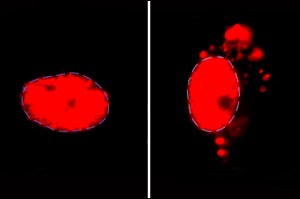Tag: ALS
-
Health
Another study links omega-3s and health
Alpha-linolenic acid — an omega-3 fatty acid found in many nuts, seeds, and oils — showed the strongest link to slowing the progression and premature death of people living with ALS.
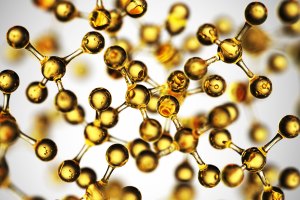
-
Health
Blocking tau may help ALS patients
Mass. General study uncovers potential new treatment strategy for disease.
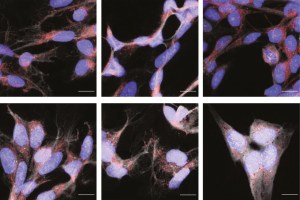
-
Health
Investigational ALS drug slows progression
An experimental medication that was recently shown to slow the progression of ALS has now demonstrated the potential to also prolong patient survival.
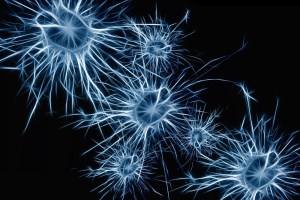
-
Science & Tech
Gut microbiome influences ALS outcomes
The researchers found that in mice with a common ALS genetic mutation, changing the gut microbiome could prevent or improve disease symptoms.
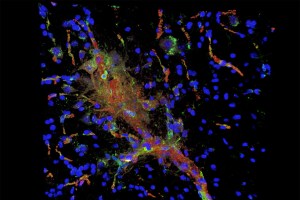
-
Health
Inflammatory processes may play role in ALS
Accumulating evidence suggests that inflammatory processes may play a role in the initiation and progression of amyotrophic lateral sclerosis (ALS).
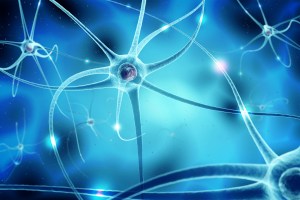
-
Campus & Community
The ‘spiritual leader’ of WHRB
After 58 years of helping Harvard student radio station WHRB build toward excellence, David Elliott steps back to undergo ALS treatment.
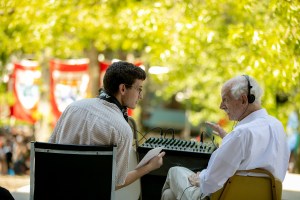
-
Health
Exercise, fasting help cells shed defective proteins
A new study from the Blavatnik Institute finds that intense exercise and fasting activate hormones that boost cells’ capacity to dispose of defective proteins, which clog up the cell, interfere with its functions, and, over time, precipitate diseases including neurodegenerative conditions such as ALS and Alzheimer’s.

-
Health
How old can we get? It might be written in stem cells
No clock, no crystal ball, but lots of excitement — and ambition — among Harvard scientists
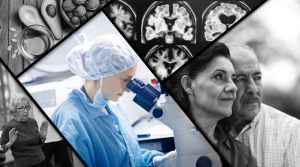
-
Health
Compound protects nerve cells targeted by diseases
Harvard researchers have identified a compound that helps protect the cells destroyed by spinal muscular atrophy, the most frequent fatal genetic disease of young children.
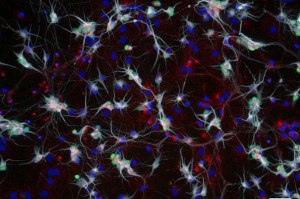
-
Health
Medical hope on horizon
Stem cell science is accelerating development of therapies for diabetes, ALS, other diseases, researchers tell HUBweek sessions.
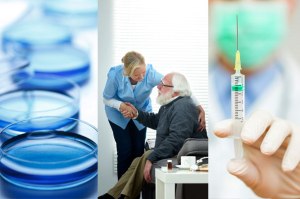
-
Health
Hope against disease targeting children
Harvard Stem Cell Institute researchers studying spinal muscular atrophy have found molecular changes that help trigger the genetic disease in children.
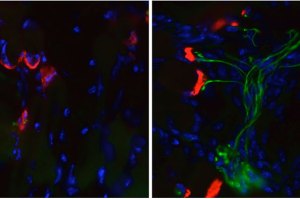
-
Health
Progress against ALS
Studies begun by Harvard Stem Cell Institute scientists eight years ago have led to a report that may be a major step in developing treatments for amyotrophic lateral sclerosis, or Lou Gehrig’s disease.
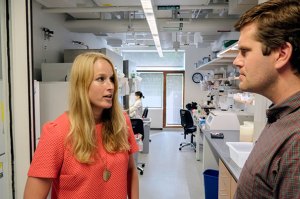
-
Health
Viewing how neurons work
A new technique for observing neural activity will allow scientists to stimulate neurons and observe their firing pattern in real time. Tracing those neural pathways can help researchers answer questions about how neural signals propagate, and could one day allow doctors to design individualized treatments for a host of disorders.
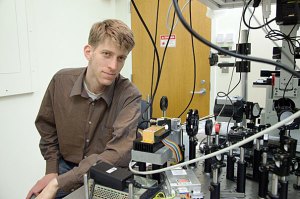
-
Health
A decade of breakthroughs
The Harvard Stem Cell Institute is now 10 years old. What began as an idea embracing cross-disciplinary research quickly became a generator of scientific discoveries.
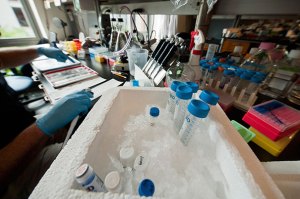
-
Health
New hope for treating ALS
Harvard stem cell scientists have discovered that a recently approved medication for epilepsy might be a meaningful treatment for amyotrophic lateral sclerosis (ALS), also known as Lou Gehrig’s disease, a uniformly fatal neurodegenerative disorder.

-
Health
High-calorie feeding may slow progression of ALS
In a small study by Harvard-affiliated Massachusetts General Hospital, increasing the number of calories consumed by patients with amyotrophic lateral sclerosis (ALS) may be a relatively simple way of extending their survival.
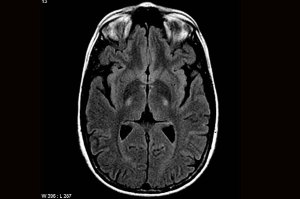
-
Health
Big boost in drug discovery
Using a new, stem cell-based, drug-screening technology that could reinvent and greatly reduce the cost of developing pharmaceuticals, researchers at the Harvard Stem Cell Institute have found a compound that is more effective in protecting the neurons killed in amyotrophic lateral sclerosis than are two drugs that failed in human clinical trials.
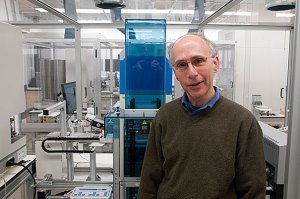
-
Health
New avenue in neurobiology
Harvard stem cell biologists have proven that it is possible to turn one type of already differentiated neuron into another inside the brain, and their findings may have enormous implications for the treatment of neurodegenerative diseases.
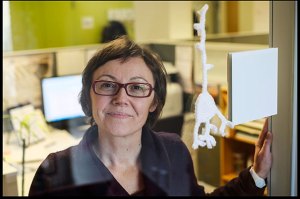
-
Health
A treatment for ALS?
According to researchers, results from a meta-analysis of 11 independent amyotrophic lateral sclerosis (ALS) research studies are giving hope to the ALS community by showing, for the first time, that the fatal disease may be treatable.

-
Health
Link found between ALS and SMA
Scientists have long known the main proteins that lead to the development of amyotrophic lateral sclerosis (ALS) and spinal muscular atrophy (SMA), respectively. Now research shows that these two motor neuron diseases likely share a pathway that leads to the development of disease.
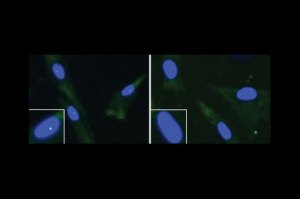
-
Health
Fixing the way we fix the brain
With neurodegenerative diseases affecting millions and having the potential to bankrupt the U.S. health care system, Harvard Medical School, seven pharmaceutical companies, and the Massachusetts state government have formed the Massachusetts Neuroscience Consortium. The goal: to offer new collaborative research models.

-
Health
Rebuilding the brain’s circuitry
Harvard scientists have rebuilt genetically diseased circuitry in a section of the mouse hypothalamus, an area controlling obesity and energy balance, demonstrating that complex and intricately wired circuitry of the brain long considered incapable of cellular repair can be rewired with the right type of neuronal “replacement parts.”

-
Health
Slowing ALS symptom progression
Harvard researchers find that treatment with dexpramipexole — a novel drug believed to prevent dysfunction of mitochondria, the subcellular structures that provide most of a cell’s energy — appears to slow symptom progression in the neurodegenerative disease amyotrophic lateral sclerosis (ALS).

-
Health
From skin cells to motor neurons
Harvard stem cell researchers have succeeded in reprogramming adult mouse skin cells directly into the type of motor neurons damaged in amyotrophic lateral sclerosis, best known as Lou Gehrig’s disease, and spinal muscular atrophy.

-
Science & Tech
Importance of stem cell research
A temporary restraining order that blocked federal funding for certain kinds of stem cell research was viewed by many as a blow to cutting-edge science. In response, President Drew Faust said, “We hope that the temporary injunction will soon be lifted and that Congress will take the steps necessary to ensure that stem cell scientists…
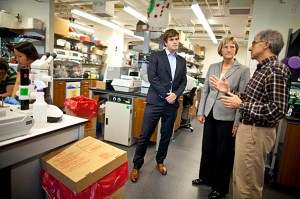
-
Health
Safer stem cells for therapy
When stem cell researchers in Japan and the United States announced in 2007 that they had developed long-sought methods to return fully developed adult human cells to an embryonic-like state, the world of stem cell research was turned upside down.
-
Health
Researchers replicate ALS process in lab dish
A Harvard Stem Cell Institute (HSCI) research team has succeeded in deriving spinal motor neurons from human embryonic stem cells, and has then used them to replicate the Amyotrophic Lateral Sclerosis (ALS) disease process in a laboratory dish.
-
Health
Neurons created from skin cells of elderly patients with ALS
Less than 27 months after announcing that he had institutional permission to attempt the creation of patient- and disease-specific stem cell lines, Harvard Stem Cell Institute (HSCI) principal faculty member Kevin Eggan proclaimed the effort a success — though politically imposed restrictions and scientific advances prompted him to use a different technique than originally planned.
-
Health
Researchers develop ALS mouse stem cell line
A team of Harvard researchers has used embryonic stem cells, derived from mice carrying a human gene known to cause a form of amyotrophic lateral sclerosis (ALS), to create an in vitro model of the always-fatal neurodegenerative disease.



